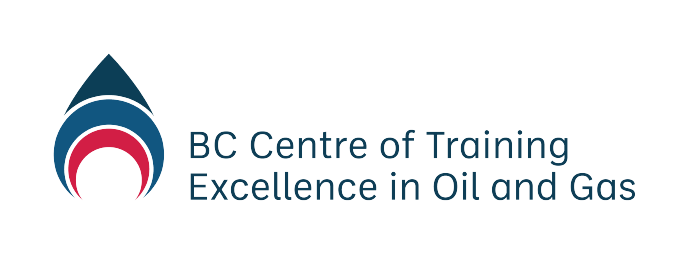-
Module 2.0 How to be Successful in this Course
-
Module 2.1 Introduction to Natural Gas
-
Module 2.2 The Natural Gas Industry in British Columbia
- Overview
- Learning Outcomes
- Natural Gas Science – The Simple Version
- Natural Gas Science – Chemistry
- Natural Gas Science – Physics
- Natural Gas Science – Units of Measurement
- Natural Gas Science – Geology
- Natural Gas Resources and Uses
- Oversight of the Natural Gas Industry
- Understanding Land Rights and Natural Gas
- Energy and the Future
-
Module 2.3 Upstream – Well Site Selection, Preparation and Drilling, Completion, Production, Water Recycling, and Reclamation
- Learning Outcomes
- The Upstream Sector – Extraction and Processing
- The Upstream Sector – Exploration and Site Selection
- The Upstream Sector – Preparation and Drilling
- The Upstream Sector – Completion
- The Upstream Sector – Production
- The Upstream Sector – Water Recycling
- The Upstream Sector – Reclamation
- Upstream Companies and Jobs in British Columbia – Companies
- Upstream Companies and Jobs in British Columbia – Industry Associations
- Upstream Companies and Jobs in British Columbia – Professional Associations
- New Vocabulary
-
Module 2.4 Midstream – Transportation, Processing, Refining
- Learning Outcomes
- The Midstream Sector
- The Midstream Sector – Processing Natural Gas
- The Midstream Sector – Liquefied Natural Gas
- The Midstream Sector – An Emerging Industry
- The Midstream Sector – Processing LNG
- The Midstream Sector – Proposed LNG Projects in British Columbia
- Transportation
- Midstream Companies and Jobs in British Columbia
-
Module 2.5 Downstream – Refining and Markets
-
Module 2.6 Health and Wellness in the Natural Gas Industry
-
Module 2.7 Safety
-
Module 2.8 Terminology and Communication
-
Module 2.9 Jobs and Careers
- Learning Outcomes
- Industry Outlook
- Technology is Changing Workforce and Skills
- Employment in the Natural Gas Industry
- Employment in the Natural Gas Industry – Types of Employment
- Employment in the Natural Gas Industry – Range of Jobs
- Employment in the Natural Gas Industry – High Demand Jobs and Occupations
- Occupational Education and Training
-
Module 3.0 How to be a Valued Employee
-
Module 3.1 Identifying Interests and Skills
-
Module 3.2 Looking for Employment in Natural Gas
-
Module 3.3 Applying for Employment in Natural Gas
This section contains a list of industry associations and their websites. These websites are often valuable sources of information for individuals looking for jobs and careers in natural gas.
Associations can be organized along business lines (i.e., contractors, processing, pipelines, transportation, etc.) or by occupations (engineers, technicians, etc.). Some associations are provincial, while others are regional or national in scope. It is not unusual for leading firms in the natural gas industry to belong to one or more industry associations.
Website 1: Energy Services BC (Independent Contractors and Businesses Association)
Energy Services BC represents companies providing services to the oil and gas industry in British Columbia. The association is now operating within the Independent Contractors and Businesses Association.
Website 2: Canadian Association of Oilwell Drilling Contractors (CAODC)
https://caodc.ca/AF_MemberDirectory.asp
The CAODC is a trade association representing upstream Canadian petroleum drilling contractors — land-based and offshore, service rig contractors and associate companies.
Website 3: Canadian Association of Petroleum Producers (CAPP)
https://www.capp.ca/about/membership/
CAPP represents upstream oil and natural gas companies in Canada who explore for, develop, and produce natural gas, crude oil, oil sands and elemental sulphur.
Website 4: Petroleum Services Association of Canada (PSAC)
PSAC is the national association of Canadian oilfield service, supply and manufacturing companies.
Website 5: Canadian Energy Pipeline Association (CEPA)
CEPA represents firms in the transmission pipeline industry in Canada.
Website 6: Canadian Gas Association
CGA represents major gas distribution and transmission companies and appliance and equipment manufacturers in Canada.
Website 7: Canadian Association of Geophysical Contractors (CAGC)
https://www.cagc.ca/
The CAGC acts as the communication link to promote understanding between Government, industry, other groups and the geophysical industry and develops, administers and promotes programs and training to ensure worker health and safety.
Website 8: Explorers and Producers Association of Canada (EPAC)
EPAC represents a wide spectrum of independent oil and gas companies ranging from start-ups to junior and mid-sized producers operating in Canada, the United States and around the world.
Learning Activity 7: Self-Directed Research
This is a self-directed learning activity that you can do on your own.
Instructions
- Visit the websites of the industry associations listed and review each association’s membership lists
- Identify and note the industry associations listing companies that you may be interested in working for.
